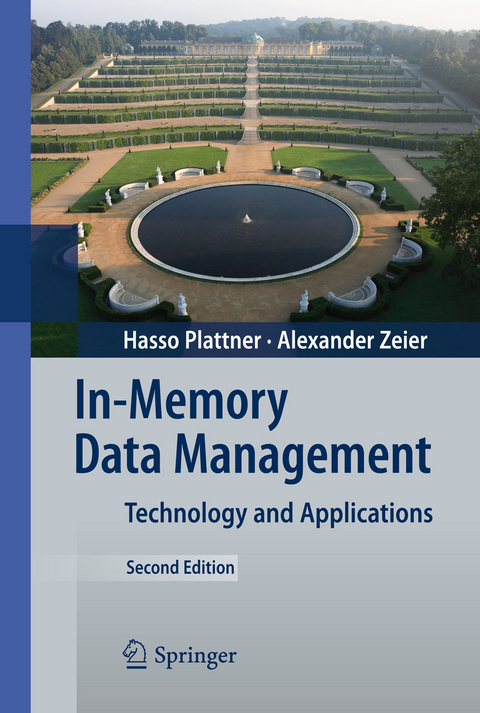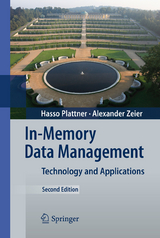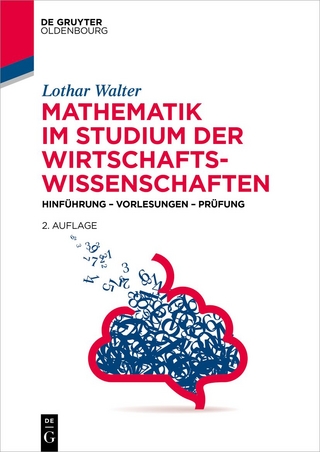In-Memory Data Management
Springer Berlin (Verlag)
978-3-642-29574-4 (ISBN)
In the last fifty years the world has been completely transformed through the use of IT. We have now reached a new inflection point. This book presents, for the first time, how in-memory data management is changing the way businesses are run. Today, enterprise data is split into separate databases for performance reasons. Multi-core CPUs, large main memories, cloud computing and powerful mobile devices are serving as the foundation for the transition of enterprises away from this restrictive model. This book provides the technical foundation for processing combined transactional and analytical operations in the same database. In the year since we published the first edition of this book, the performance gains enabled by the use of in-memory technology in enterprise applications has truly marked an inflection point in the market. The new content in this second edition focuses on the development of these in-memory enterprise applications, showing how they leverage the capabilities ofin-memory technology. The book is intended for university students, IT-professionals and IT-managers, but also for senior management who wish to create new business processes.
Prof. Dr. h.c. Hasso Plattner is a co-founder of SAP AG, where he served as the CEO until 2003 and has since been chairman of the supervisory board. SAP AG is today the leading provider of enterprise software solutions. In his role as chief software advisor, he concentrates on defining the mid- and long- term technology strategy and direction of SAP. Hasso Plattner received his diploma in communications engineering from the University of Karlsruhe. In recent years, he has been focusing on teaching and research in the field of business computing and software engineering at large. In 1998, he founded the Hasso-Plattner-Institute (HPI) in Potsdam, Germany. At the HPI, approximately 480 students are currently pursuing their Bachelors' and Masters' degrees in IT Systems Engineering with the help of roughly 50 professors and lecturers. The HPI currently has about 100 PhD candidates. Hasso Plattner leads one of the research groups at HPI which focuses mainly on In-Memory Data Management for Enterprise Applications and Human-Centered Software Design and Engineering. Dr. Alexander Zeier graduated from the University of Wuerzburg in business management and successfully completed his studies in information technology at the TU Chemnitz. He worked for a few years as a strategic IT consultant, before gaining his Ph.D. in Supply Chain Management (SCM) at the University of Erlangen-Nuremberg. He has 20 years experience with IT/SAP Systems and started working for SAP in 2002 as product manager with overall responsibility for the SCM Software, SAP's first large In-Memory Application. Since 2006 he has been Deputy Chair Enterprise Platform and Integration Concepts of Prof. Hasso Plattner at the Hasso Plattner Institute in Potsdam, focusing on real-time In-Memory Enterprise Systems. During that time he has also been Executive Director for the European Section of the MIT Forum for Supply Chain Innovation. Since March 2012 Dr. Zeier has been working at the Massachusetts Institute of Technology (MIT) as Visiting Professor, lecturing and conducting research in the area of In-Memory Technology & Applications, and Supply Chain Innovation. He is the author of more than 150 journal articles and papers and has also published six books on IT and SAP.
1. Introduction. Lloyd Strickland, Julia Weckend.- Section 1: Science. 2. Philosophy and science in Leibniz. Maria Rosa Antognazza.- 3. Between learned science and technical knowledge: Leibniz, Leeuwenhoek and the school for microscopists. Alessandro Becchi.- 4. Leibniz, organic matter and astrobiology. Richard T. W. Arthur.- Section 2: Metaphysics. 5. Plenitude and mirrors of God in Leibniz. Nicholas Jolley.- 6. As matter to form so passive to active? The irreducible metaphysics of Leibniz's Dynamics. Tzuchien Tho.- 7. Conceptual analysis and ontology in the Leibniz - De Volder correspondence. Stefano di Bella.- Section 3: Epistemology. 8. Leibniz's empirical, not empiricist methodology. Dale Jacquette.- 9. Leibniz on certainty. Julia Weckend.- 10. Leibniz and probability in the moral domain. Chris Meyns.- Section 4: Religion and Theology. 11. How Leibniz would have responded to the Lisbon earthquake. Lloyd Strickland.- 12. Leibniz on the efficacy and economy of divine grace. Agustín Echavarría.- 13. Eternal punishment, universal salvation and pragmatic theology in Leibniz. Paul Lodge.- Biographical conclusion. 14. In the "hinterland" of globalization? Leibniz and the European expansion. Michael Kempe.- Index.
int GmbH, Hamburg, Germany)
It rarely happens that a emerging new technology can be seen as a "game changer" for a whole industry. But I think this is the case when it comes to in-memory database systems. Tasks which took hours or days can now be executed in seconds which is the technical foundation for establishing completely new business ideas. It dramatically speeds up the execution time of data analytics and thereby creates a much greater experience for the end user on our Bigpoint Gaming Platform. The book "In-Memory Data Management - Technology and Applications" from Hasso Plattner and Alexander Zeier describes not only the technical foundations but also the implications for new exciting applications.
Dr. Ralf Schneider (CIO, Allianz SE, Munich, Germany)
Being IT savvy and leveraging advances in Information Technology is the most important competitive advantage in today's business world. I see in-memory technology as described in the book "In-Memory Data Management - Technology and Applications" from Plattner and Zeier as one of the most important innovations in the field of IT. The value for the economy as a whole far outweighs the effort of adapting the applications to this new standard. It dramatically speeds up the execution time of business processes, it allows for significantly more detailed and real-time data analytics and thereby creates a much greater experience for the end user. It brings business computing to a level where it is absolutely snappy and fun to work with.
| Erscheint lt. Verlag | 14.5.2012 |
|---|---|
| Zusatzinfo | XXXIV, 267 p. 99 illus. |
| Verlagsort | Berlin |
| Sprache | englisch |
| Maße | 155 x 235 mm |
| Gewicht | 592 g |
| Themenwelt | Mathematik / Informatik ► Mathematik ► Finanz- / Wirtschaftsmathematik |
| Wirtschaft ► Allgemeines / Lexika | |
| Schlagworte | Cloud Computing • Database Management • Datenmanagement • enterprise applications • HANA • Informationsmanagement • SanssouciDB • SAP |
| ISBN-10 | 3-642-29574-6 / 3642295746 |
| ISBN-13 | 978-3-642-29574-4 / 9783642295744 |
| Zustand | Neuware |
| Haben Sie eine Frage zum Produkt? |
aus dem Bereich




